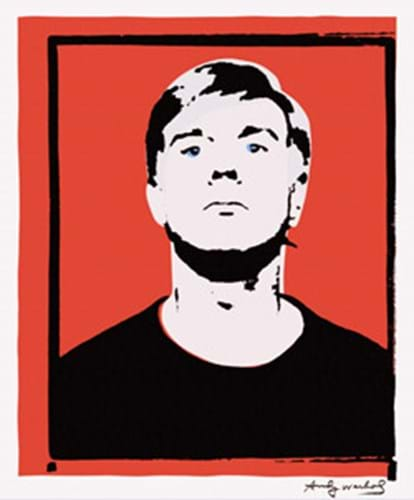
Joe Simon-Whelan, an American film producer now living in London who has accused the Warhol Foundation of a "20-year scheme ... to restrain and monopolise trade in the market for Warhol works" won permission from a New York judge to pursue his case earlier this year.
Simon-Whelan bought his 2ft x 20in (60 x 50cm) Warhol self-portrait from the London dealer Michael Hue-Williams for $195,000 in 1989, two years after it sold at Christie's New York for $25,000.
The work, stamped with Warhol's signature, had been "acquired directly from the artist" and had previously been authenticated by the Foundation's Andy Warhol Art Authentication Board as a Warhol silkscreen of 1964.
Simon-Whelan chose to sell the picture in 2001, when its value had escalated to £2m-3m. To aid its commercial prospects he was urged to submit the piece to the board again to ensure inclusion in the artist's catalogue raisonné. This time, the picture "came back ruined" with a stamp to the reverse Denied.
He was told he could resubmit the work if its provenance was established, only to be told again in 2003 that the picture was a fake. The presence of two Denied stamps - that Simon-Whelan contends has ended any possibility that the picture could ever be accepted as genuine in the future - has led him to call his picture Double Denied.
As chronicled by Simon-Whelan on the website myandywarhol.com, he sued the Warhol Foundation in a federal court in New York in 2007. He alleged that the board: "has denied the authenticity of works that were previously owned by the estate and stamped with serial numbers from the estate; routinely denies the authenticity of a certain percentage of Warhols, particularly when several from the same series are submitted; has denied authentication as a means of retaliation; and changes its authentication policies when the change suits the Board's financial interests".
It was, he says, in the interests of the Foundation, who have substantial Warhol holdings, to limit the number of available "authentic" works and questioned the merits of a contract he had signed at the time of submission that gave the board a "perpetual veto right over its authenticity" without giving reasons for their decisions.
In addition to financial damages, it is Mr Simon-Whelan's wish to see a more open and transparent process for the authentication of Warhol's art.
Lawyers representing the Warhol institutions deny any scheme, saying that of the 1200 applications made each year, the board rejects only 15 to 18 per cent of them.
The decision taken on May 26 by Judge Laura Swain did dismiss elements of the claim, but it allows Simon-Whelan to pursue claims of fraud and unjust enrichment against the Foundation.
Importantly, the ruling allows Simon-Whelan's legal team to "get inside the doors of the foundation" to gain witness depositions and gather documents with subpoena power. It may take more than 18 months for the evidence to be gathered, by which time other owners of other controversial Warhol 'fakes' are expected to have joined Simon-Whelan in his case.
• In separate news, 11 large screenprints from Warhol's The Athletes series were stolen from the Los Angeles house of modern art collector Richard Weisman some time on September 3. Mr Weisman befriended Warhol at the height of his fame and commissioned the 3ft 4in (1.02m) square portraits of famous athletes in the late 1970s.
Los Angeles Police Department said a $1m reward has been offered for information leading to the recovery of the paintings.




